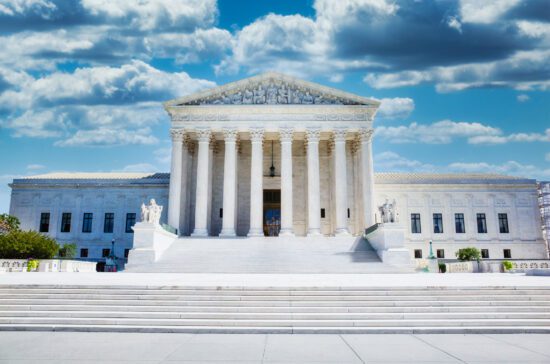Congressional appropriations are the mechanism by which we fund our government. You might have heard recently that Congress has narrowly avoided several “government shutdowns.” These shutdowns occur when Congress fails to pass the necessary “appropriations bills,” funding our government and designating how our taxpayer dollars are spent. Funding for the government runs out at the end of each fiscal year on Sept. 30. This year, Congress has failed to pass any of the necessary appropriations bills over five months past the September funding deadline. However, Congress is poised this week to pass the first six of these 12 bills and plans to pass the remaining six bills later this month.
The appropriations process
The appropriations process is something that takes almost the whole year. Theoretically, it follows this procedure:
- The president submits his proposed budget to Congress in early spring.
- From there, the House and the Senate begin drafting each of these 12 appropriations bills that fund the different parts of the government.
- Those are then passed through the appropriations committee.
- Next, they pass the House floor and go through that same process in the Senate.
- Ultimately, they go to the president’s desk, all before Sept. 30 when the fiscal year ends.
However, that is not how it usually works. What tends to happen is that the president submits his request, which is largely ignored. Then, the House and Senate each begin working on different versions of those 12 bills. The bills look different based on who is controlling the House and the Senate.
It’s a messy process, but it’s important because this is how our taxpayer dollars are being spent. Trillions of dollars are being allocated, so we want to have a say in how that money is being spent and what it’s going toward.
How does the ERLC engage the congressional appropriations process?
Every year, the ERLC engages in the appropriations process pretty heavily. We do a comprehensive review of all 24 of these bills, both the 12 House bills and 12 Senate bills. We weigh through thousands and thousands of pages of legislative text looking for anything of concern. Specifically, we’re looking for issues where government funding could be going to an abortion provider, to fund gender-transition procedures, or policies that could implicate the consciences of medical professionals or taxpayers.
We also try to find some positive things that we can support. When negotiators are down to the wire and they’re trying to decide what gets into a compromise package, we want them to know these are the priorities of Southern Baptists, and we want them to be able to include those in the final package. After we do our review, we make sure that those concerns and priorities are communicated to people on Capitol Hill, especially those who are involved in those negotiations.
The ERLC’s daily advocacy
When we are doing advocacy on a daily basis, whether that’s appropriations or in other contexts and on other issues that we care about, we have a lot of tools in our toolbox that we can use to help lawmakers better understand the perspective of Southern Baptists. We are here to communicate why these things matter to us and why they are important, not just for our communities, but also the broader communities in which we exist.
We want to see all people flourish, and good policy allows people to do that. We are able to convey that through letters that we send to lawmakers. We can also work in coalitions with other partners who are like-minded on our issues and help to bolster our influence through partnering together. In addition, we meet with members of Congress and their staff, helping educate them on these issues and advocating for them to take positive actions or push back on bad policy. Each issue often requires something a little bit different.
As Southern Baptists, we really care about these issues of life, religious liberty, marriage and family, and human dignity, and seeing the flourishing of all of our neighbors (Jer. 29:7)—that is even reflected in appropriations. As a nation, our spending reflects what we care about. We want to see our spending as a nation—our taxpayer dollars—being used in a way that promotes good, God-honoring things. We can’t just sit on the sidelines. We have to engage in order to see lives defended, to hold onto important religious liberty protections, and to push back against bad policies.
For more about our advocacy in Washington, D.C., check out this ERLC Podcast episode.










